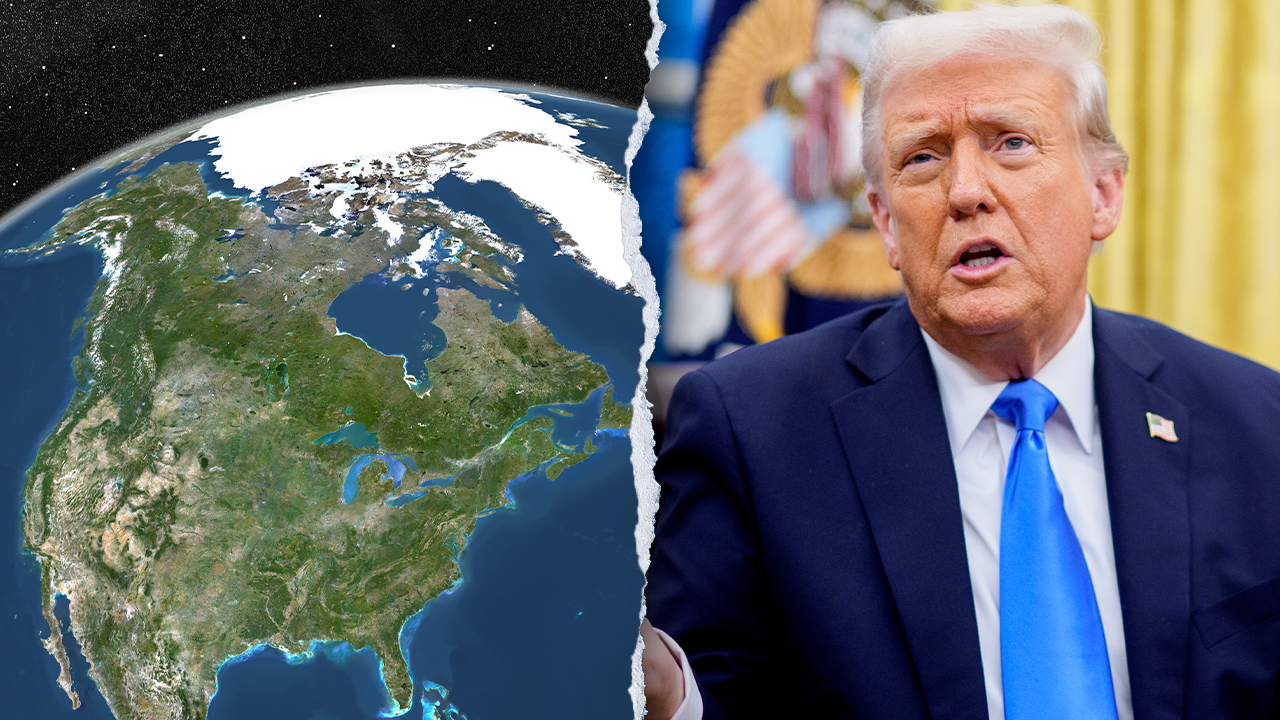Canada Denounces Trump's Aggressive "51st State" Talk: Renewed Tensions and Diplomatic Fallout
Introduction: Former US President Donald Trump's recent comments suggesting Canada could become a "51st state" have sparked outrage and strong condemnation from the Canadian government. This provocative statement, delivered during a [mention specific event/interview where the statement was made], reignited long-standing tensions between the two North American neighbors and has raised concerns about the future of their bilateral relationship. This article delves into the details of the statement, the Canadian government's response, and the potential implications for US-Canada relations.
Trump's "51st State" Remark: A Reiteration of Past Assertions?
Trump's statement, while seemingly outlandish to many, echoes previous rhetoric during his presidency regarding the renegotiation of NAFTA (now USMCA) and his broader approach to international relations. He has historically displayed a willingness to challenge established norms and alliances. This particular assertion, however, represents a significant escalation, directly threatening Canada's sovereignty and independence. [Link to a reputable news source reporting on Trump's previous statements about Canada].
Key Takeaways from Trump's Statement:
- Assertion of US Dominance: The comment reflects a perceived US dominance over its neighbors, a view often criticized for its disregard for Canadian autonomy.
- Economic Implications: The underlying suggestion hints at the potential for economic coercion and control should Canada become incorporated into the US.
- Security Concerns: The implications for national security and defense strategies are significant, raising questions about Canada's independence in matters of defense and foreign policy.
Canada's Fierce Rebuttal: A Defense of Sovereignty
Canadian Prime Minister [Prime Minister's Name] swiftly and decisively condemned Trump's statement, labeling it as [Quote the PM's response, if available]. This response was echoed by various ministers and officials across the Canadian political spectrum, highlighting the bipartisan consensus in rejecting Trump's assertion. The statement underscored Canada's commitment to its independent identity, its democratic institutions, and its strong international alliances.
Canada's Strategic Response:
- Diplomatic Channels: The Canadian government has likely engaged in diplomatic discussions with US officials to address the concerns raised by Trump's comments.
- Public Relations Campaign: The government has likely leveraged various communication channels to counter the narrative and reinforce Canada's position on its sovereignty.
- Strengthening Alliances: The incident may lead Canada to further strengthen ties with other nations, particularly within NATO and other international organizations.
Potential Long-Term Implications for US-Canada Relations
Trump's comments, while potentially damaging, are unlikely to fundamentally alter the deeply intertwined economic and security relationship between the US and Canada. However, the incident highlights underlying vulnerabilities and potential points of friction. The long-term impact will depend largely on the evolving political landscape in both countries and the nature of future interactions.
Areas of Concern:
- Erosion of Trust: The incident could negatively impact the level of trust between the two nations, particularly regarding future negotiations and cooperative ventures.
- Trade Relations: While USMCA remains in effect, uncertainty about the future of bilateral trade relationships remains a concern.
- Defense Cooperation: Any strain on relations could affect the degree of military cooperation and joint defense strategies.
Conclusion: A Wake-Up Call for Strengthening Bilateral Ties
Trump's "51st state" comment serves as a stark reminder of the complexities and potential challenges in US-Canada relations. While the immediate fallout may be managed through diplomatic channels, it underscores the need for both nations to actively work towards strengthening their relationship based on mutual respect, shared values, and a commitment to open communication and cooperation. Moving forward, fostering better understanding and transparent dialogue are crucial for maintaining a stable and productive partnership.
Keywords: Canada, Trump, 51st state, US-Canada relations, sovereignty, diplomacy, international relations, political tensions, North America, bilateral relations, USMCA, NAFTA, Canadian Prime Minister, [Prime Minister's Name], [mention specific event/interview].
